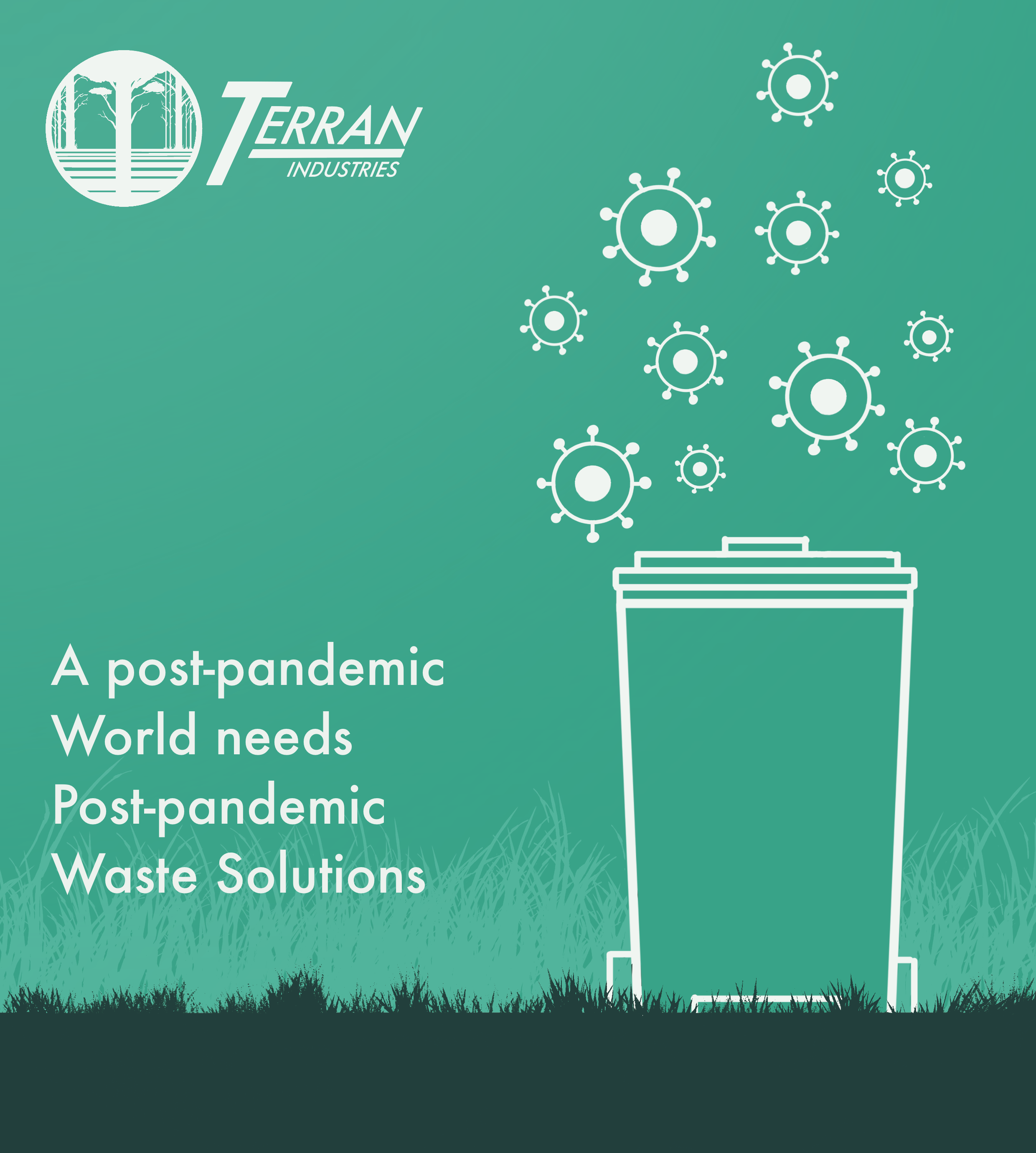Circular EconomyCultureRecyclingSolving The Pandemic Plastic Problem

The COVID-19 pandemic caused a sudden surge in the production and use of disposable plastic items. From face masks and home testing kits to disposable food packaging, the increased uptake of these items was sharp and sudden. For people who had been campaigning against plastic waste, it was frustrating to see progress seemingly reversed, as a move away from disposable plastics morphed into a huge global dependence on them.
Billions of new single-use plastic items produced
As the pandemic rapidly spread around the world in 2020, one of the big societal changes to happen overnight was the widespread use of face masks. Sadly, many of these were single-use, disposable face masks made from plastic. Because the need for face coverings arose so quickly and there was a sense of panic around catching the new virus, even people who might usually have been more eco-friendly in their choices were more likely to opt for a medical-style blue mask out of expedience.
Single-use face masks are not biodegradable, and many are ending up in oceans and waterways, damaging wildlife. They are also more likely to shed microplastics than, say, plastic bottles. It’s estimated that 3.4 billion face masks are discarded every day, with dropped and abandoned face masks now a common sight on pavements around the world. The negative environmental implications are significant.
A further issue with disposable face masks is that, unlike with other plastic items such as water bottles or packaging, there is no official guidance on how to recycle them. They can’t be recycled via normal recycling streams and can in fact contaminate the rest of the materials to be recycled. As a result, many of them have simply ended up in the trash.
But face masks weren’t the only type of plastic waste generated by the pandemic. Household waste also increased dramatically. Many more people were ordering take-outs on a regular basis or purchasing recipe boxes, both of which created more plastic waste than eating out or doing a traditional grocery shop. In hospitality, the trend towards reusable containers and receptacles was reversed. Disposable items like coffee cups and plastic cutlery became more commonplace again, perceived to be the more hygienic option.
Finally, the requirements for PPE for healthcare workers, testing equipment and plastic medical supplies also rose significantly during the pandemic. Like face masks, many of these items can’t be recycled via usual channels and are treated as clinical waste, usually headed for landfill.
Ideally, items that did need to be made from plastic would have at least been made from recycled plastic. But due to a range of complex factors, including global economics, this wasn’t the case.
Virgin plastic won out over recycled plastic in the pandemic
Despite many governments and companies pledging their dedication to using more recycled plastic, recycling companies really struggled during the coronavirus pandemic, due to a lack of demand for recycled plastic. Why? Because virgin plastic became much cheaper.
The economic shock of the pandemic hit the oil industry in a big way, causing oil prices to plummet. Recycled plastic was already more expensive than virgin plastic, but as the fossil fuels needed to create brand-new plastic became much cheaper, this price gap only widened. Unfortunately, this led to more manufacturers opting for virgin plastic to make their products.
Non-recycled plastic is worse for the environment than recycled plastic for two reasons. Firstly, it puts more plastic into the world when we are already struggling to deal with the amount we have. Secondly, it is made from fossil fuels, using up even more of the earth’s natural resources and carrying a heftier carbon footprint.
So what can be done to minimise and reverse the pandemic plastic problem?
Starting change through attitude shifts
While there are logistical issues that need to be addressed to process and recycle the new pandemic waste, the attitudes and behaviour of society at large have contributed to the issue. As mentioned, single use items such as masks and coffee cups were adopted on a large scale at the start of the pandemic, even by people who would usually try to use reusable items for the sake of the planet.
The main reason for this was perceptions about hygiene and how COVID-19 could be passed via surfaces and materials. Many people assumed that the virus was less likely to be transmitted via the use of disposable plastic items. However, a report by Zero Waste Europe asserts that there is no scientific evidence that this is the case. The report claims that the disposable plastic industry was peddling this myth in order to encourage the purchase of their products.
Now that we have a better understanding of the virus and people have adjusted to life in the time of a pandemic, a concerted push to change attitudes and discourage the use of single-use items is necessary to stem some of the tide of disposable plastics. Scientists from the University of Denmark recommend the adoption of reusable cotton masks instead of disposable ones as a key move to fighting pandemic waste. Zero Waste Europe agree, also suggesting that people should be encouraged to partake in hand washing and sanitisation instead of wearing gloves.
More data and stricter guidelines needed on mask pollution and recycling
Because of the sudden nature in the rise of disposable masks, the data on their impact is lacking. This makes it more difficult to push urgent action on mask pollution. However, Elvis Genbo Xu from the University of Denmark states: "we know that, like other plastic debris, disposable masks may also accumulate and release harmful chemical and biological substances, such as bisphenol A, heavy metals, as well as pathogenic micro-organisms. These may pose indirect adverse impacts on plants, animals and humans.”
There are schemes that recycle single-use face masks, for example Terracycle’s Zero Waste Box – a face mask disposal bin that businesses can purchase and display in public areas for people to dispose of masks in. Some companies have also created solutions to make new products out recycled face masks. UK company Waterhaul, for example, started making products out of used PPE from the National Health Service. And French company Plaxtil, who usually recycle clothes, pivoted to start recycling face masks once the pandemic hit and they saw the rise in discarded plastic masks. Between June and August in 2020 they turned 50,000 masks into new products for the healthcare industry. However, these are isolated schemes – mask recycling has not been adopted and implemented on a large scale.
Genbo Xu and his colleagues therefore recommend that standardization, guidelines, and strict implementation of waste management for masks be considered as a key solution to the problem. Zero Waste Europe have also highlighted the need for proper guidance and rules on the recycling of masks and PPE.
Circular solutions for pandemic waste
The circular economy could hold key solutions in combatting pandemic plastic waste. A drawback with traditional recycling is that products can only be recycled a finite number of times. Plastic, for example, becomes lower quality each time it is recycled, and there is always a percentage of the original material that cannot be recycled. Items such as face masks are also difficult to recycle, because they are made up of a combination of different plastics blended together.
However, a new technology based on principles of the circular economy could provide a solution. It’s called chemical recycling, and it breaks down plastics into their smallest building blocks: monomers. The company Loop Industries has already developed a chemical recycling technology that does just this. Used plastics are completely broken down and purified so that they can be made into new, food-grade plastics that resemble virgin plastic. Circular solutions like this could be key to decoupling plastics from fossil fuels.
While Loop Industries developed their chemical recycling technology for food and beverage packaging such as plastic bottles, research is currently being carried out to create a similar chemical recycling process for face masks to ensure the whole product can be broken down and reused.
Is a plastic-free pandemic possible?
While the pandemic is not yet over, enough time has passed that people are starting to develop solutions for pandemic plastic waste. It’s estimated that chemical recycling for masks will be ready for implementation in 1.5-2 years, and in the meantime, traditional recycling is dealing with some of the waste.
We can also hope that governments will develop better guidelines for dealing with pandemic waste, while we can all do our bit to switch to reusable items and encourage others to do the same. The pandemic may have caused a setback in the war on plastic, but it’s also presented us with opportunities to innovate and find solutions to our planet’s most pressing problems.

Rachel Baker
Writer
Rachel is a writer who specialises sustainability and ethical business, creating articles, blog posts and copy to inform and inspire.
